Discover more about the Birthplace of Democracy and the cradle of Western Civilization with these fun and interesting facts about Athens in Greece.
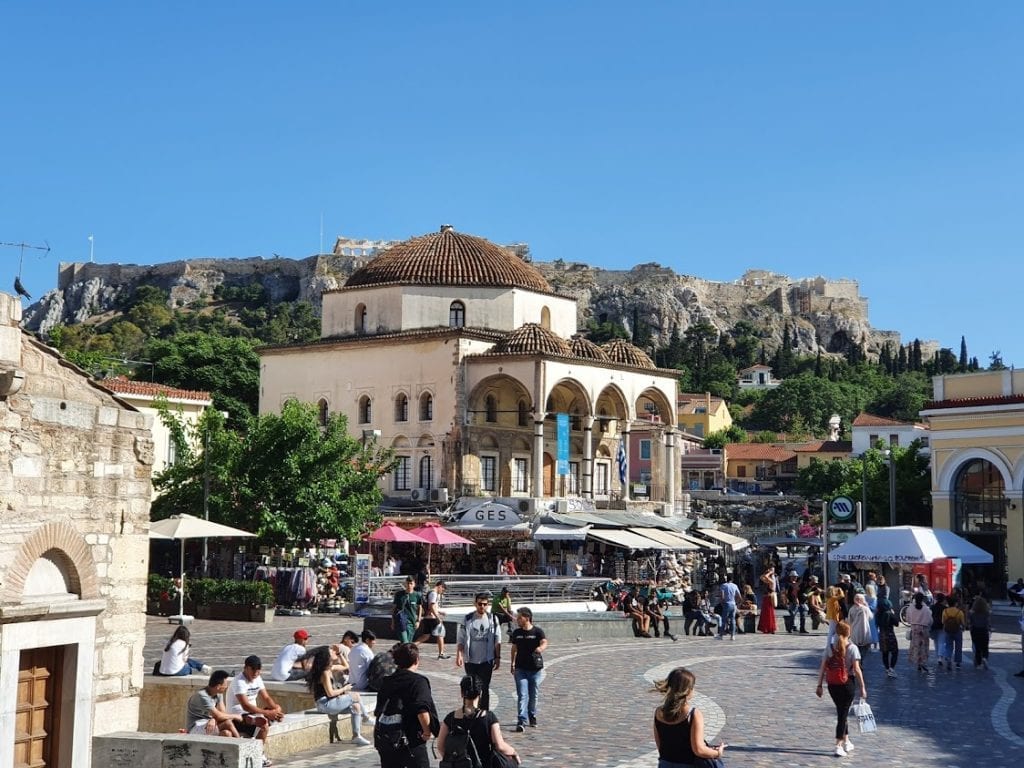
Athens Facts and Trivia
With a history dating back over 5000 years, Athens in Greece is the second oldest city in Europe. As might be expected, during this time countless weird and wonderful, sad and happy events have occurred in Athens.
Here, we've pulled together some of the more interesting and fun facts about Athens, Greece covering both ancient and contemporary time periods.
If you're thinking of taking a vacation in Greece, and would like to find out more things to do in Athens, please sign up for my free travel guides below!
Fascinating Facts About Athens
We'll begin with some mythological, cultural, and historical trivia, starting with….
1. Athens could have been named Poseidonopolis!
You may know that the city of Athens is named after the Greek Goddess Athena. Perhaps what you don't know though, is that the city could have been named after Poseidon.
The Greek Myths have a story where the ancient Greek Gods had a competition to see who would be the city's patron and protector. Two Gods came forward – Athena and Poseidon.
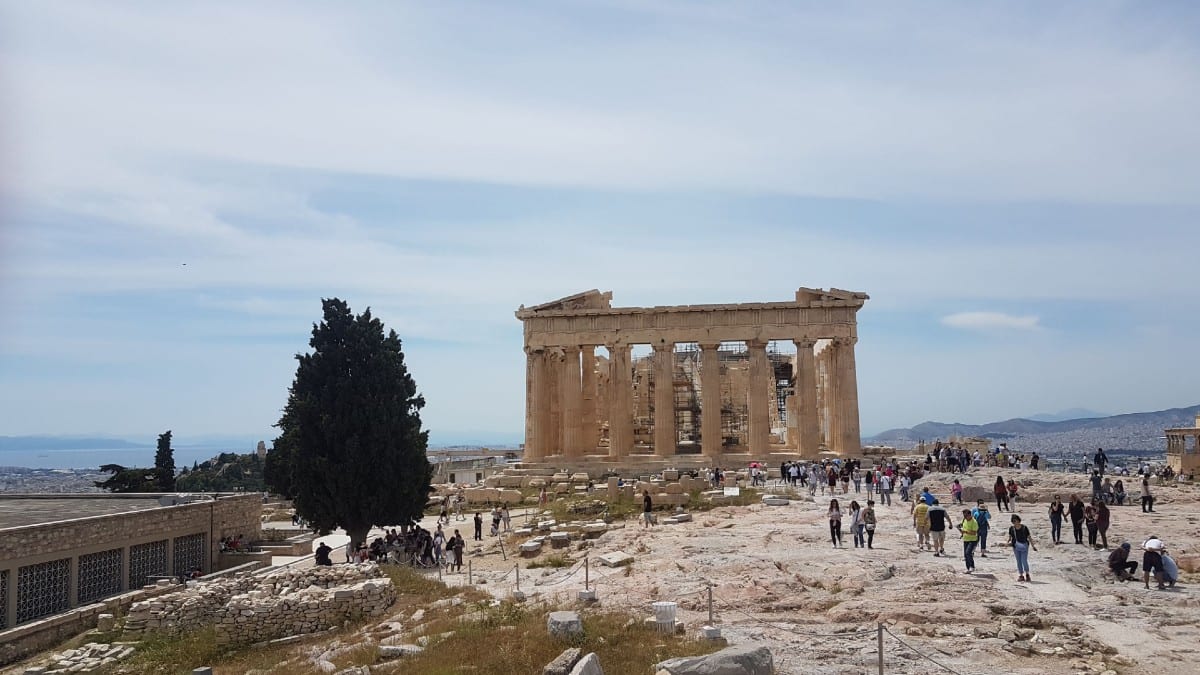
Each God offered a gift to the city. Poseidon produced a spring on the Acropolis which had a slightly salty taste. Athena produced an olive tree.
The citizens of the city decided that Athena's gift was by far the most useful, and made her the patron, thus naming the city Athena (Athens in English).
2. Athens only became the Greek Capital in 1834
One of the weird facts about Athens, is that it only became the capital city of Greece relatively recently. The reason for this, is that Ancient Greece was not a country, but a collection of independent city states.
They may have shared the same cultural, religious and linguistic heritage, but they were ruled independently. In the centuries that followed, the geographical area of Greece was then occupied and ruled by the Romans, Venetians and Ottomans (among others!).
Following the Greek War of Independence, Athens was finally declared the capital of Greece on September 18th, 1834.
3. The Acropolis is a UNESCO World Heritage Site
Many people think the Parthenon and the Acropolis are the same thing, but they are not. The Acropolis is a natural high point in Athens which has been fortified. On top of this, a number of Ancient Greek temples and buildings were constructed.
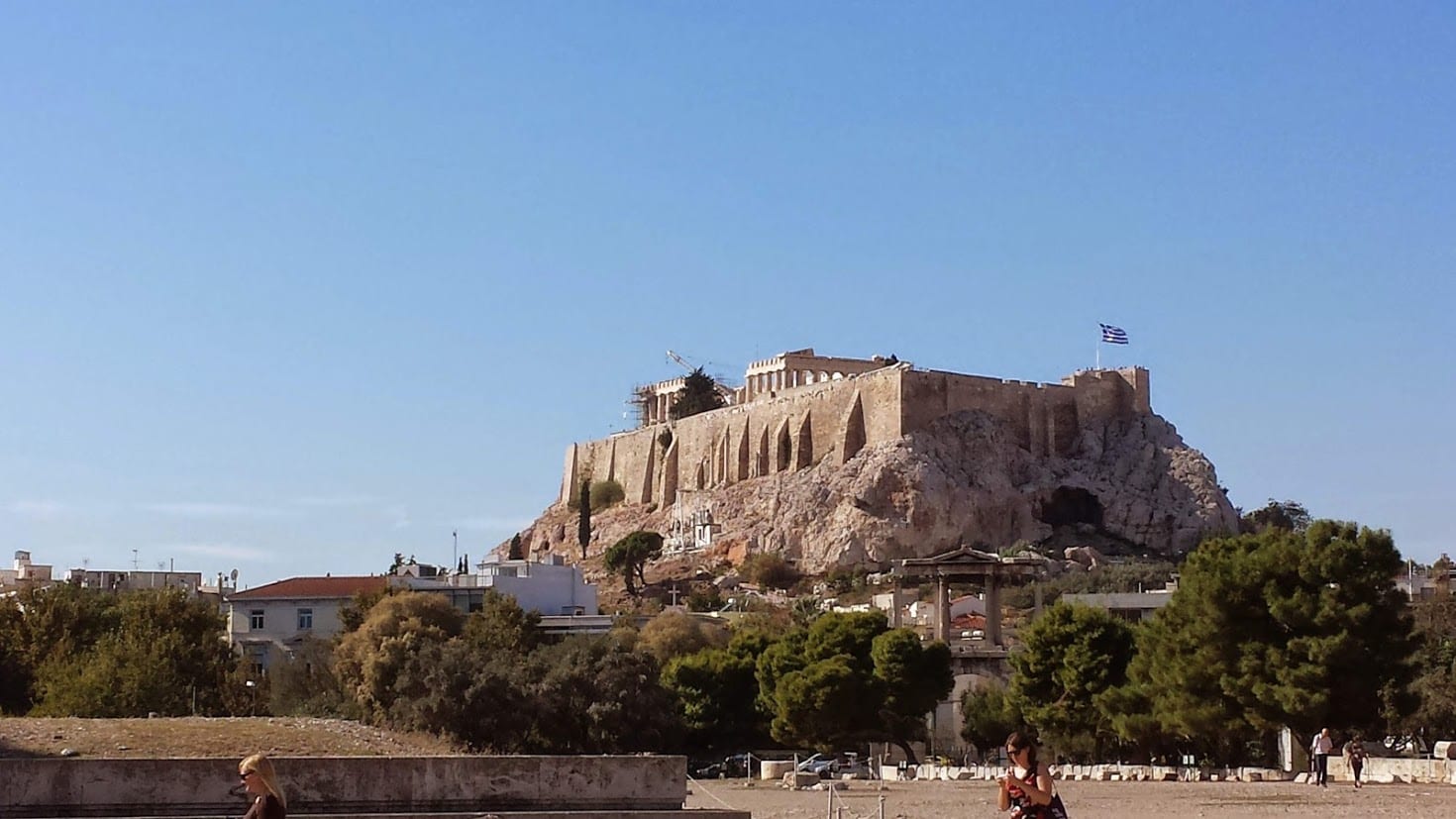
Whilst the most famous building on the Acropolis is the Parthenon, there are also others such as the Propylaia, the Erechtheion and the Temple of Athena Nike. These buildings, together with the fortified Acropolis itself constitute a UNESCO World Heritage Site.
Find out more: UNESCO World Heritage Sites in Greece
4. The Caryatids on the Acropolis are not real
The much photographed enigmatic female figures on the south side of the Erechtheion on the Acropolis are in fact replicas. Five of the real ones can be seen on display in the Acropolis Museum.
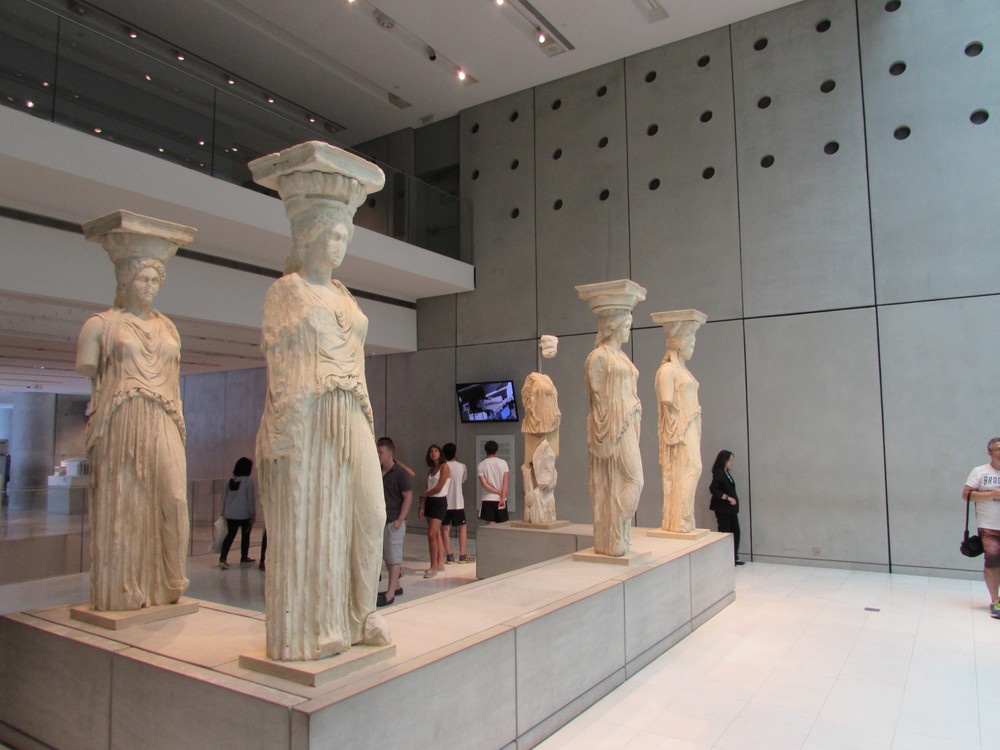
The sixth can be seen in the British Museum along with the other so-called ‘Elgin Marbles'.
The subject of Lord Elgin and the Parthenon marbles is something that arouses strong emotions with Greeks, and there is an ongoing campaign to have the Parthenon marbles returned to Athens.
5. There is a ‘Greek Island' village below the Acropolis
Just underneath the Acropolis of Athens is an unusual collection of houses in a neighbourhood known as Anafiotika. When you walk around this area, you can't help but feel you may be in a small island village in the Cyclades.
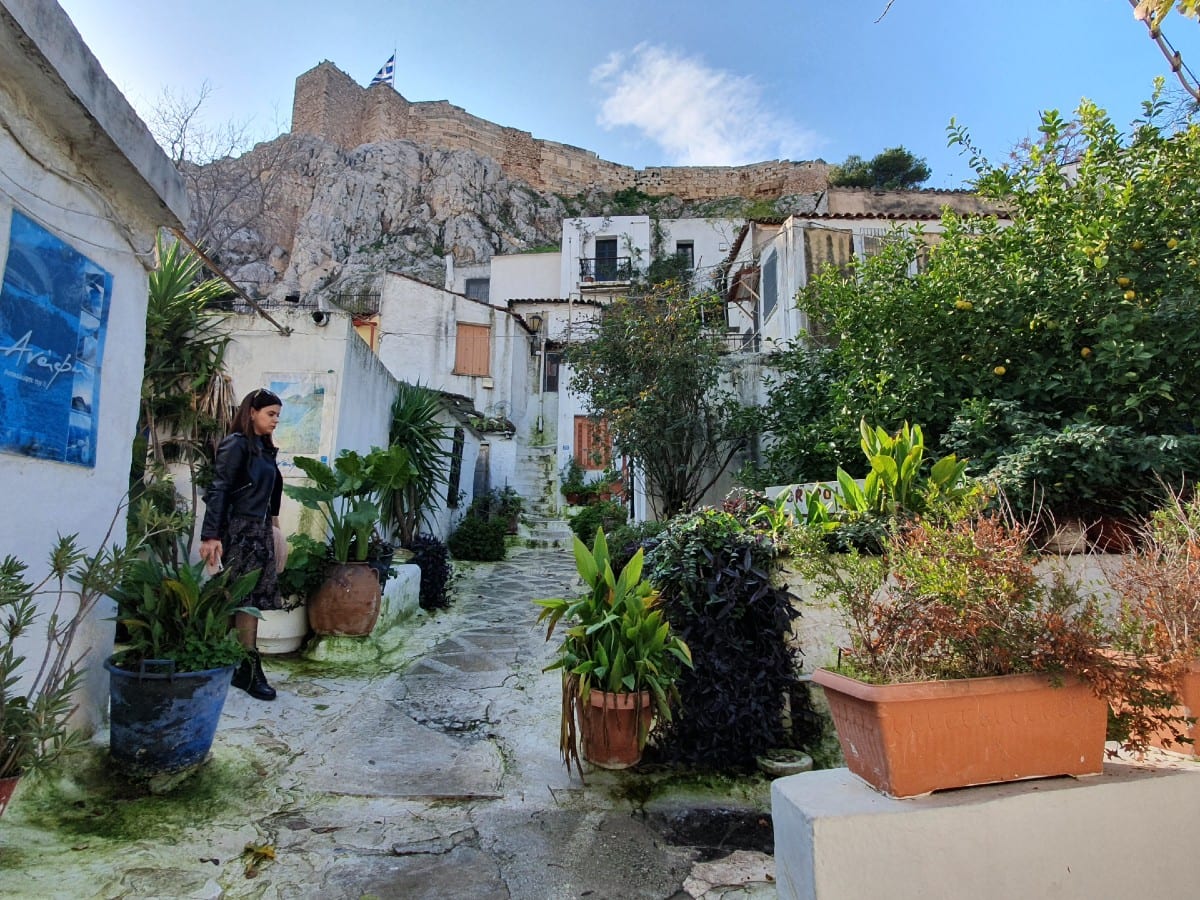
This may be because these houses were constructed by people who came over from the island of Anafi to help build Athens when it became the capital.
6. Ancient Athens and Sparta were bitter rivals
As we mentioned, the Greek city states were independent, and whilst they often banded together in alliance against invaders such as the Persians, they also fought against one another.
As the two most powerful city states, Athens and Sparta often came into conflict. The Peloponnesian War (431–404 BC) is the best example of this.
7. Athenian Democracy
Athens is often referred to as the birthplace of democracy. And yes, if you didn't realise already, democracy is taken from a Greek word!
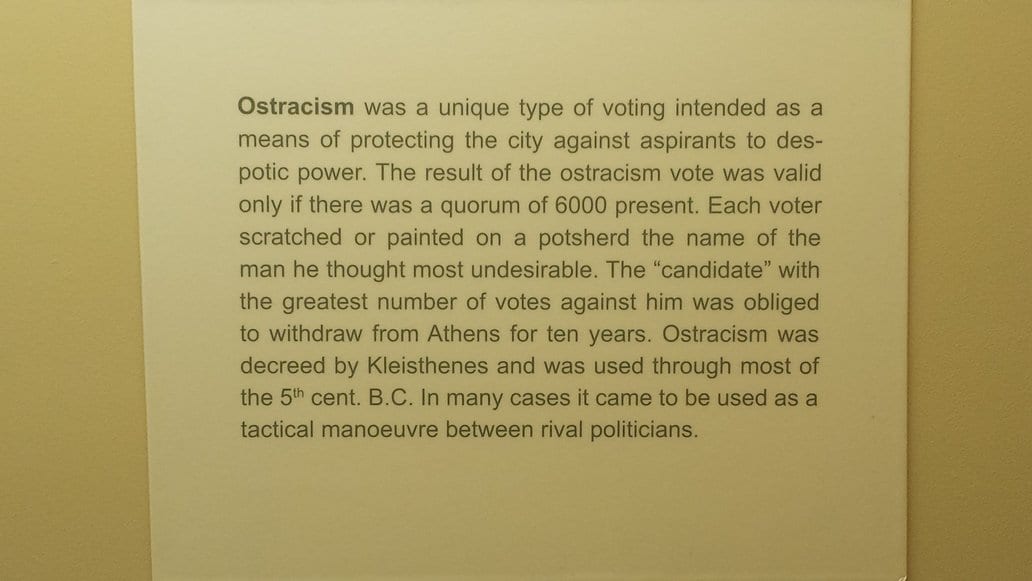
Athenian democracy developed around the sixth century BC, and enabled adult male Athenians a vote when attending assembly meetings.
8. Classical Athens and Philosophy
Whilst Athens can't lay claim to have ‘invented' philosophy, many of the greatest Greek philosophers were Athenians or had schools in classical Athens.
Socrates, Plato and Aristotle are three of the most famous philosophers, but branches of philosophy such as Stoicism and Epicureanism also originated here.
9. The Parthenon was blown up
During the Ottoman occupation of Greece, the Venetian army attacked Athens. The Ottoman's were dug in on the Acropolis, and were using the Parthenon as a place to store gunpowder and ammunition.
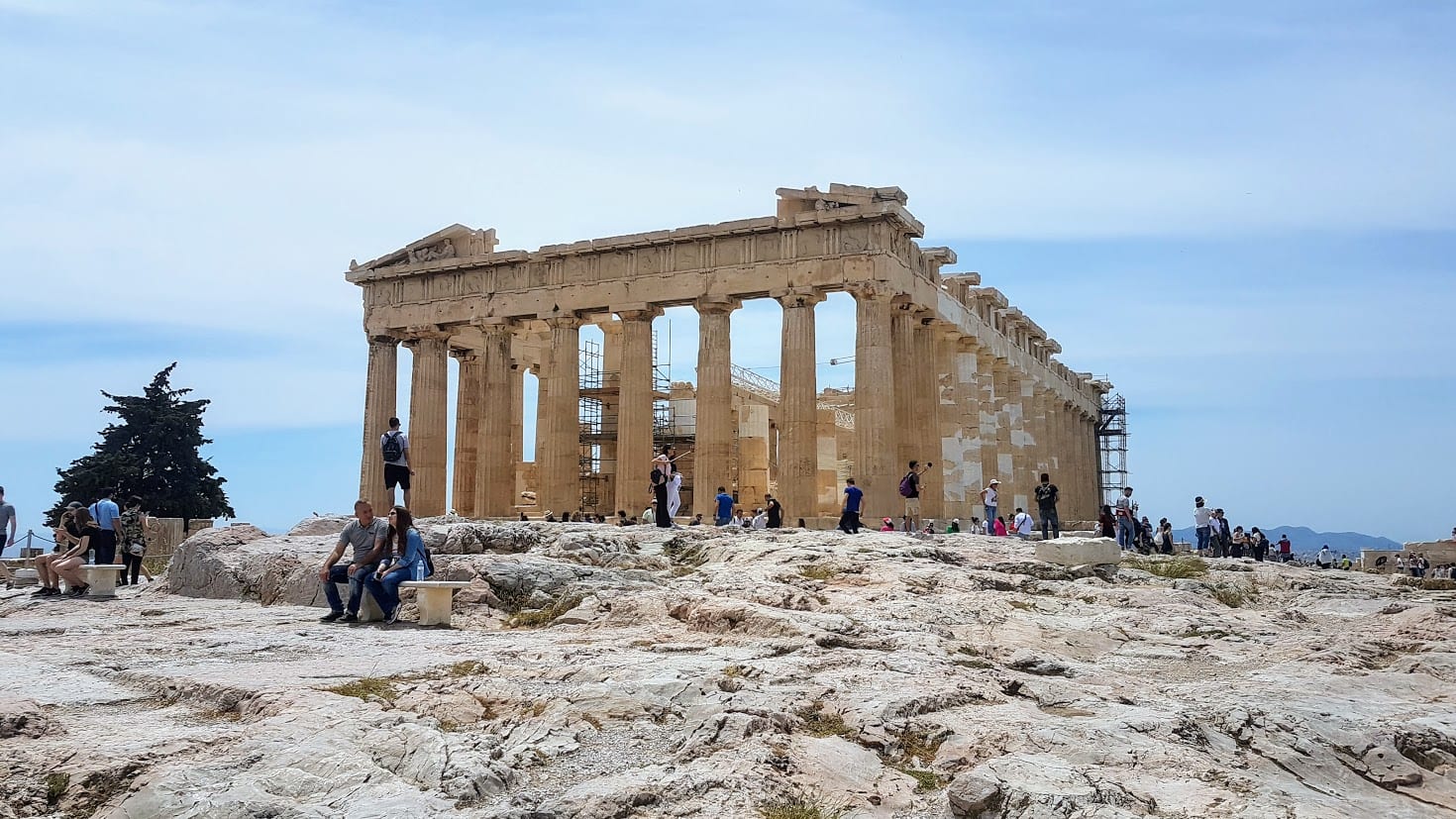
On 26 September 1687, the Venetian Morosini ordered cannon to fire on the Acropolis, and one shell hit the Parthenon resulting in a huge explosion which collapsed columns, and destroyed many carvings.
10. Ancient Ruins underneath your feet
It seems no matter where you dig in Athens, something ancient is discovered! That was certainly the case when the Athens Metro was being built.
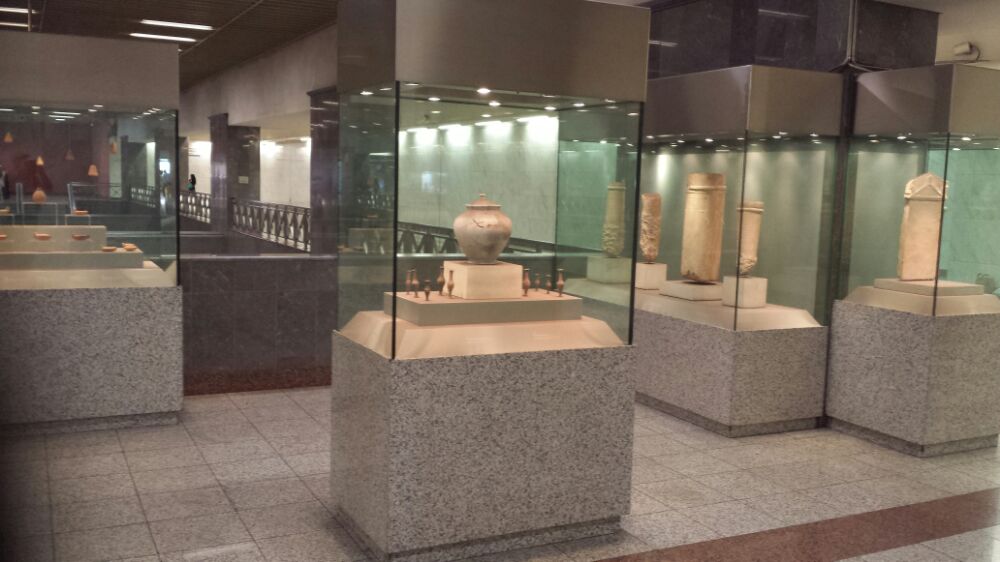
In fact, many of the items found during the metro construction were sent to museums in Greece. Others can be found on display in the metro stations themselves.
11. Athens Olympic Games
The first modern Olympic Games was held in the city in 1896.
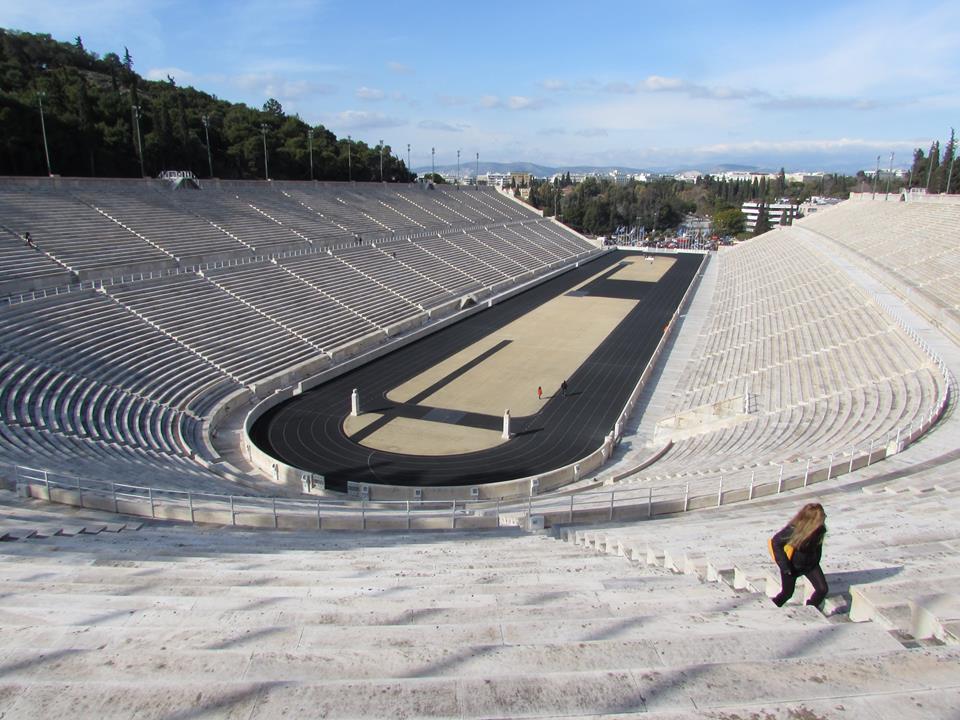
The main venue for athletic events for this first Olympic Games was the Panathenaic Stadium – the only stadium in the world made entirely from marble.
12. There are over 100 museums and art galleries
As might be expected with a city with a rich cultural background, there are an amazing amount of museums and art galleries to explore.
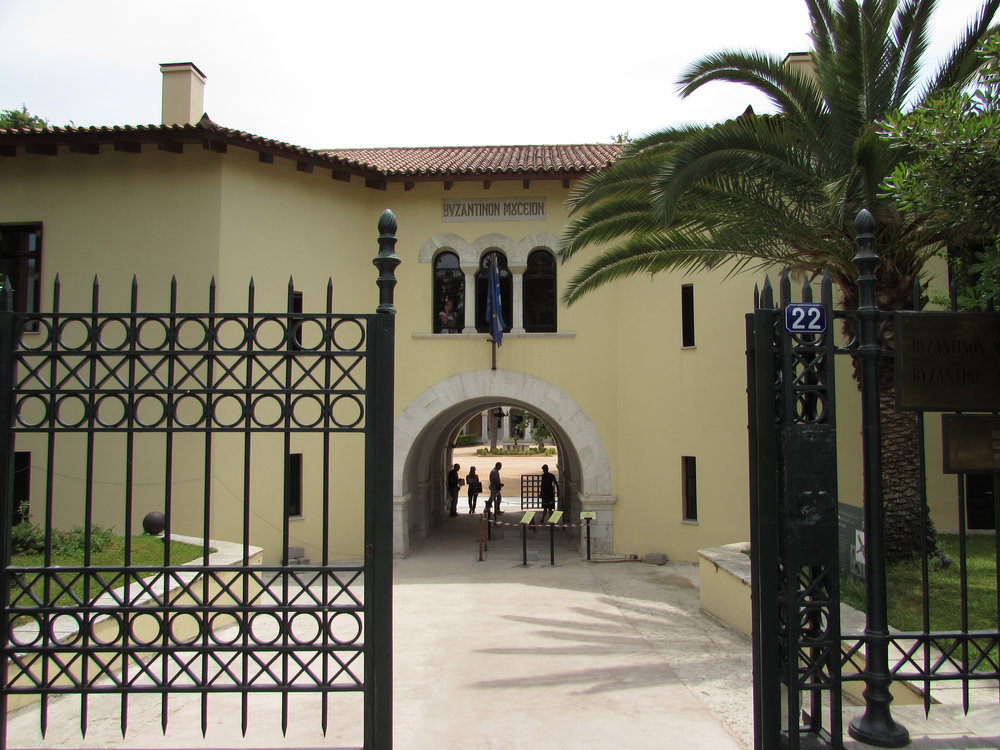
Some, such as the National Archaeological Museum, Benaki Museum, and Acropolis museum are world famous. Others, such as the Shadow Puppet museum are ways that Greek heritage and traditions are kept alive.
During five years of living in Greece, I've had the opportunity to visit many of the museums.
You can find out more here: Museums in Athens.
13. Exploring Ancient Athens
The city has several key archaeological sites as well as lesser known areas where you can see ancient Athens peaking out from behind the modern urban sprawl.

Many of the sites can be seen around the Acropolis in what is termed as the historic centre. It's possible to easily see the main places such as the Acropolis, Temple of Olympian Zeus, Ancient Agora and more during a two day city break.
Find out more here: Athens 2 day itinerary
14. Neoclassical Athens
After Greek independence, many public buildings and houses of residence were constructed in what is called a neoclassical style. This style of architecture drew influence from the Golden Age, heralding grand buildings with columns.

Some of the more famous neoclassical buildings include the Zappion, Houses of Parliament, many of the buildings around Syntagma Square, the National Archaeological Museum, Numismatic Museum and more.
15. The highest ever recorded temperature in Europe
Athens had the highest recorded temperature in Europe at a whopping 48C or 118.4F which was measured in July 1977.
16. Athens is Europe's oldest capital city
As it has been continuously inhabited for at least 5000 years, Athens is thought to be the oldest capital city in Europe. It has a recorded history of over 3400 years, and today is home to more than 3.5 million people in the wider urban area.
17. The Marathon ends in Athens
The Marathon gets its name from when a Greek messenger ran nearly 26 miles from the battlefield in Marathon to Athens to announce the Athenian army's victory at the historical Greek battle of Marathon in 490 BCE.
The original race was actually closer to 25 miles in length and it wasn't until after the 1908 Olympics that it became standardized at 26.2 miles. An annual Marathon event takes place in Athens each year in November, and is considered to be one of the world's more challenging races open to people of all abilities.

18. The ancient Olympic Games were never held in Athens
While the ancient Athenians took part in Olympic games, they were never held in Athens. The Olympic Games themselves were held in Olympia, in the Peloponnese region of Greece.
In ancient times, truces were arranged between warring city states so that athletes, their sponsors, and spectators could travel to Olympia in safety!
FAQ About Athens
Here's some of the most commonly asked questions about the historic city of Athens:
How did Athens get its name?
The capital city of Greece was named after its patron Goddess Athena. According to ancient Greeks, Athena won a competition with Poseidon as to who should be the city's patron after creating an olive tree on the Acropolis of Athens.
What is an interesting fact about Athens?
Athens is one of the oldest cities in the world having been continuously inhabited for over 5000 years.
What is Athens famous for?
The cultural achievements of Athens during its Golden Age in the fields of philosophy, architecture, mathematics, and politics not only made it a center of knowledge in the Ancient world but also provided much for the foundation of Western civilization.
What made Athens so powerful?
Athens was one of the most important city states in Ancient Greece thanks to a combination of factors which included a good strategic position, control of important trading routes, nearby mines rich with silver, and an educated populous that produced good leadership.
You might also be interested in these other Greek travel guides and articles:
- Fun and interesting Greece facts
- Fun facts about Ancient Greece
- Fascinating facts about Santorini
- Best Historical Places in Greece
- The Best Cities in Greece
- Greek Coffee Culture
- What is Greece famous for
- What is Athens famous for?

 – Dave Briggs
– Dave BriggsDave's travel writer from the UK who's been living in Athens Greece since 2015 and is fascinated by its history and culture. In addition to writing these Athens facts he's also written hundreds of other blog posts and travel itineraries for Athens and other destinations all over Greece. Follow Dave on social media for travel inspiration from Greece and beyond: